
Indigo Milky Plants
Indigo Milky Cap, also known as Lactarius indigo, are a type of mushroom that can be found in forests throughout North America, Europe, and Asia. These mushrooms are easily recognized by their striking blue color, which is caused by the presence of a pigment called "lactocyanin". Indigo Milky Cap typically grow in clusters near the base of.
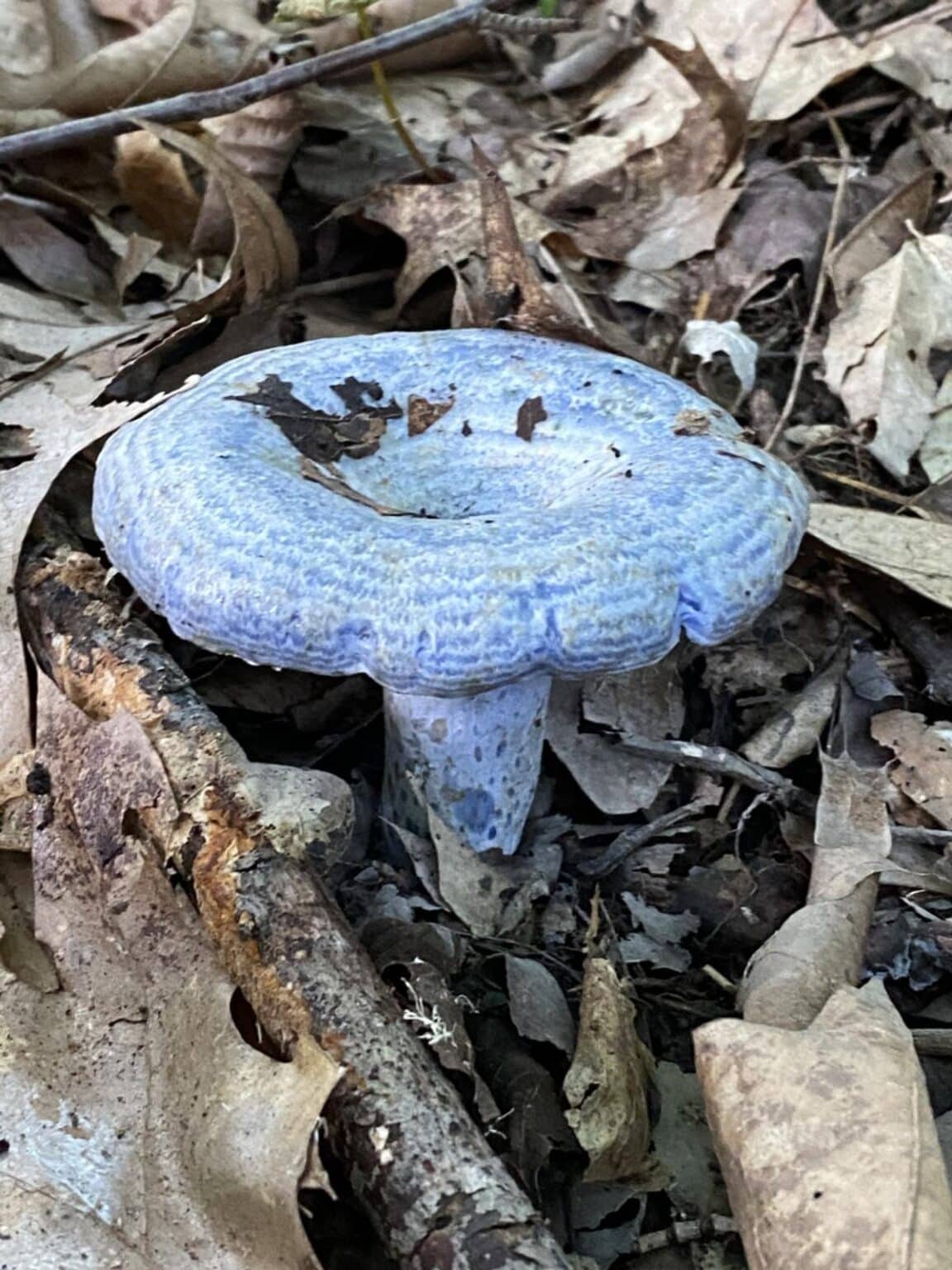
Indigo Milky Caps Identification, Foraging, and Cooking Mushroom
The indigo milk cap, sometimes simply called the indigo mushroom, is a strikingly beautiful species with a blue fruiting body.It belongs to a group of fungi that ooze latex when sliced—in some species the latex is white and does resemble milk, but for the indigo the latex is, well, indigo.

Milky White Gel Polish Indigo
Milky White is a very delicate milky shade that will be appreciated by all natural look lovers. In combination with slightly stronger colours, it will let to create surprising designs.. I agree to receive from INDIGO NAILS sp.z o.o. with headquarters in Łódź at ul. Senatorska 14/16, 90-752 Łódź, commercial and marketing information.
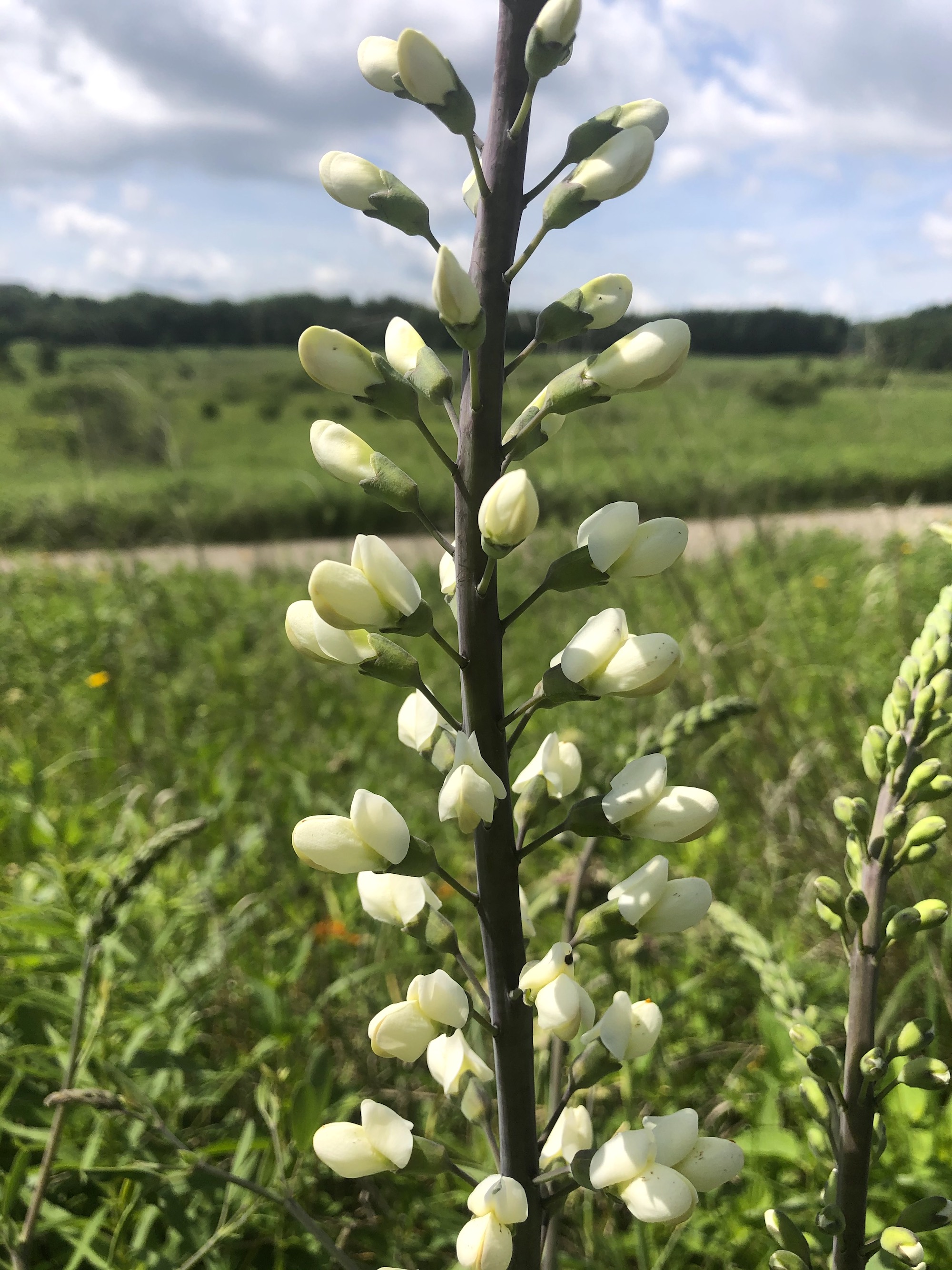
Wisconsin Wildflower White Wild Indigo Baptisia lactea Baptisia alba
Description: Cap: Various shades of blue or blue-gray, center slightly depressed to funnel-shaped; smooth; bruises a deep green; flesh white but immediately turns blue when cut. Latex a lovely indigo blue which slowly turns dark green when exposed to air; stains fingers. Gills: Pale bluish-white, sometimes with green stains; close.

frolicingintheforest Indigo Milky(Lactarius indigo) Indigo, Fungi
Spore Color: The spore print of Lactarius indigo is a pale yellow/off-white. Substrate and Habitat: It is commonly found in woodland settings, particularly under hardwoods and conifers. Other Characteristics: This mushroom exudes a milky latex when the gills or flesh are damaged. The latex is indigo blue and slowly turns green upon exposure to air.

Milky White Gel Polish Indigo Nails South Africa
Common names: indigo milkcap, Indigo Milky, Diminutive Indigo Milk Cap. Extract from Wikipedia article: Lactarius indigo, commonly known as the indigo milk cap, the indigo (or blue) lactarius, or the blue milk mushroom, is a species of agaric fungus in the family Russulaceae. A widely distributed species, it grows naturally in eastern North.

Babyboomer Milky Pink Gel Polish & Sugar Effect by Indigo Educator Len
Indigo milk cap mushrooms are a type of fungi that are commonly found in North America, Europe, and Asia. They are typically found in deciduous and coniferous forests during the late summer and early fall months. These mushrooms are known for their striking blue color and milky white sap, which is released when the mushroom is cut or broken.
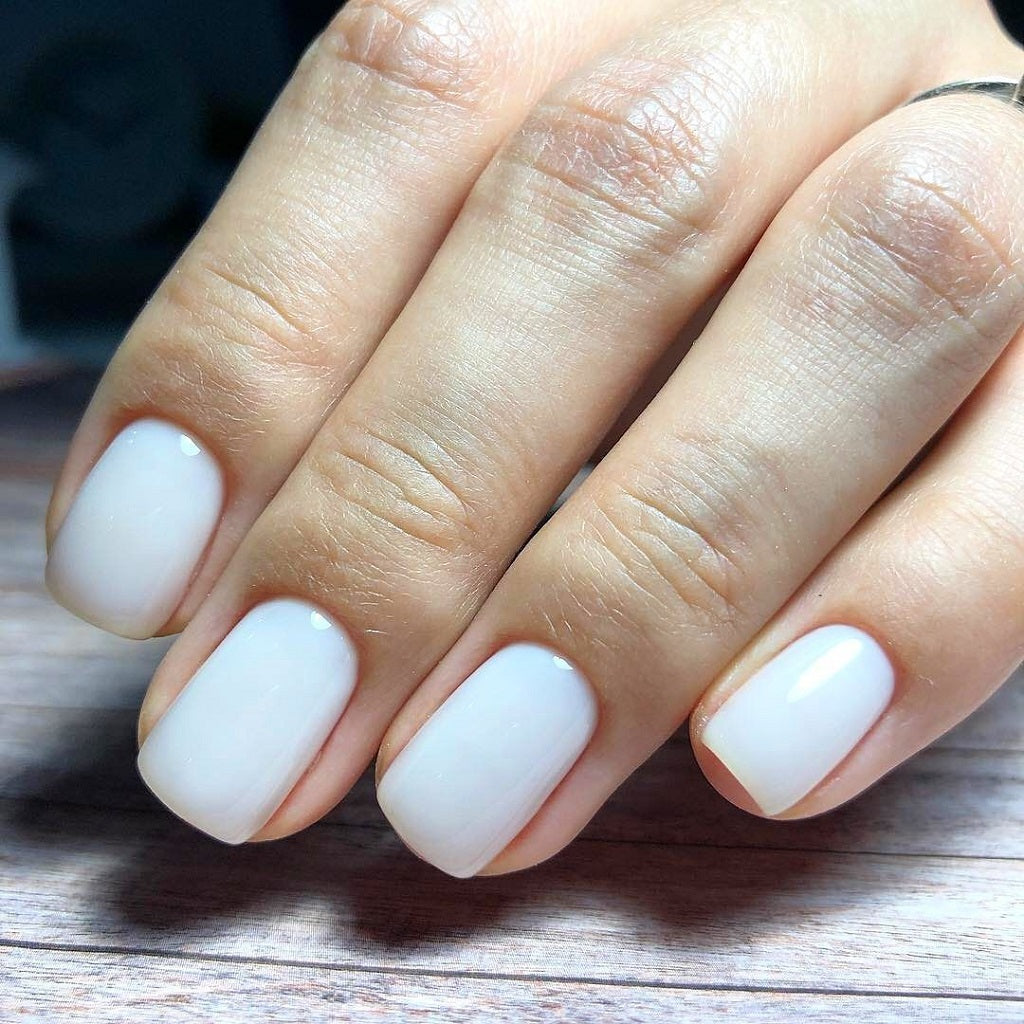
Best Nail Polish Colors for Summer Reviews 2023 DTK Nail Supply
The Natural Habitat of Indigo Milk Caps. Indigo milk caps can be found in North America, Central America, and Europe, with a preference for growing in deciduous and coniferous forests. These mushrooms thrive in well-drained, acidic soils and typically grow near oak and pine trees. They also favor a moist environment with moderate temperatures.
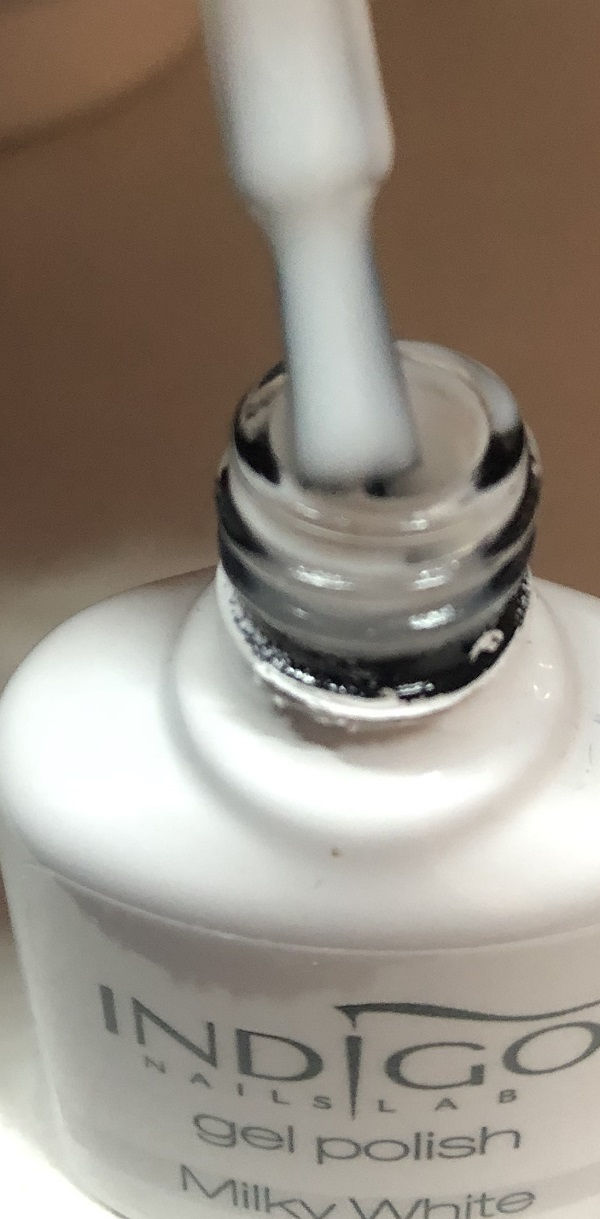
indigo Milky white gel polish 7ml hybryda lakier hybrydowy french
But when it comes to flavor, the indigo milk cap is just as distinctive. The mushroom's flavor is often described as nutty, earthy, and slightly sweet, with a mild peppery taste that lingers on the tongue. Some people also report a slightly bitter aftertaste, which can be avoided by removing the gills before cooking.
BeautyInMe września 2014
Lactarius indigo, commonly known as the indigo milk cap, indigo milky, the indigo (or blue) lactarius, or the blue milk mushroom, is a species of agaric fungus in the family Russulaceae. It is a widely distributed species, growing naturally in eastern North America, East Asia, and Central America; i

INDIGO lakier hybrydowy Beach Please Siwiec 10ml 7039012421
Description. White wild indigo is a 40 ″ to 80 ″ tall, erect, long-lived, perennial forb that rises from a deep taproot and rhizomes. The stems are unbranched in the middle and below, with ascending branches near the top below the inflorescence. They are light green or reddish-purple, hairless, and covered with a whitish, waxy bloom (glaucous).
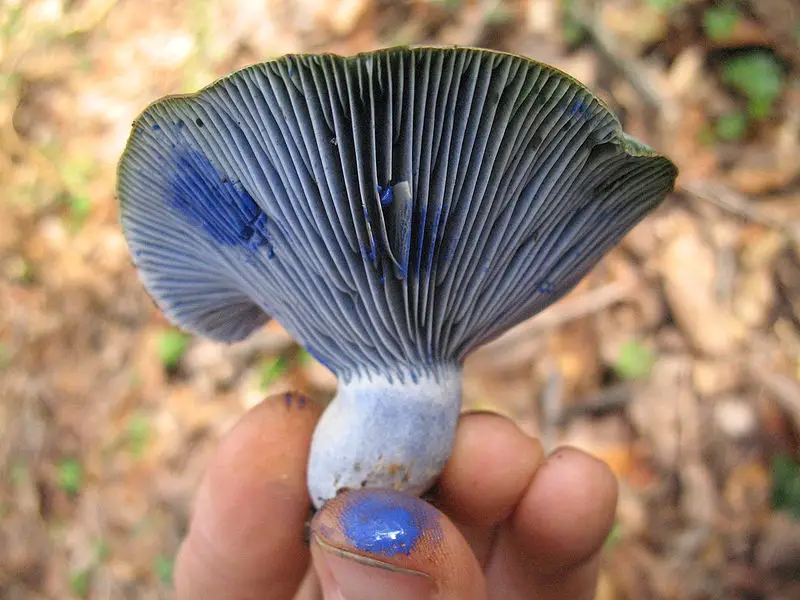
Lactarius indigo Plants
It is known as Lactarius indigo var. diminutivus, the smaller indigo milk cap. The caps on this type don't get larger than 3 inches in diameter with a stem averaging .5-1.5 inches long. It is not unheard of for a Lactarius species to be bitter or spicy. Many milky caps are inedible due to their bitter taste.

Indigo Milky Mushroom [East Tennessee] r/mycology
1/8 teaspoon mustard powder. 1 large egg we use duck eggs. 1/3 cup whole organic milk we use organic whole or raw milk. enough organic sunflower oil or other frying oil to cover your mushrooms in whatever pan you're using we use a flat-bottomed wok. 5 large Lactarius indigo mushroom caps or 10 small caps.
Lactarius indigo 'Indigo Milky' r/mycology
In a medium saucepan, simmer the mushrooms in the water, lemon juice, and butter for 10 minutes. Drain and cool. Place the mushrooms in a blender or food processor along with the persimmons, milk, vanilla, cinnamon, and eggs. Blend until smooth. Mix the sugar, flour, baking soda, and salt together in a bowl.

Image result for indigo milky pink Gel Polish Manicure, Gel Nails
Entire mushroom bluish, bleeding blue; then greenish, bruising greenish. Grows scattered or in groups on soil in oak and pine woods. July-October. Cap convex to sunken, with inrolled margin at first ; indigo blue when fresh, fading to pale grayish blue with deep greenish bruises; texture sticky, smooth, zoned. Latex deep indigo blue, becoming dark green with exposure to air. Gills broad.

Milky White Gel Polish 7ml
Indigo Milkcaps Preserved In "Holy Oil". Turkish Saffron Milkcaps With Cumin Yoghurt. Fricando Of Veal With Saffron Milk Caps. Saffron Milk Caps: Niscalos or Rovellones. 35 Essential Wild Mushrooms Every Forager Should Know. Lactarius indigo are striking mushrooms that stain a deep blue when cut. They're edible and fine to eat when young.